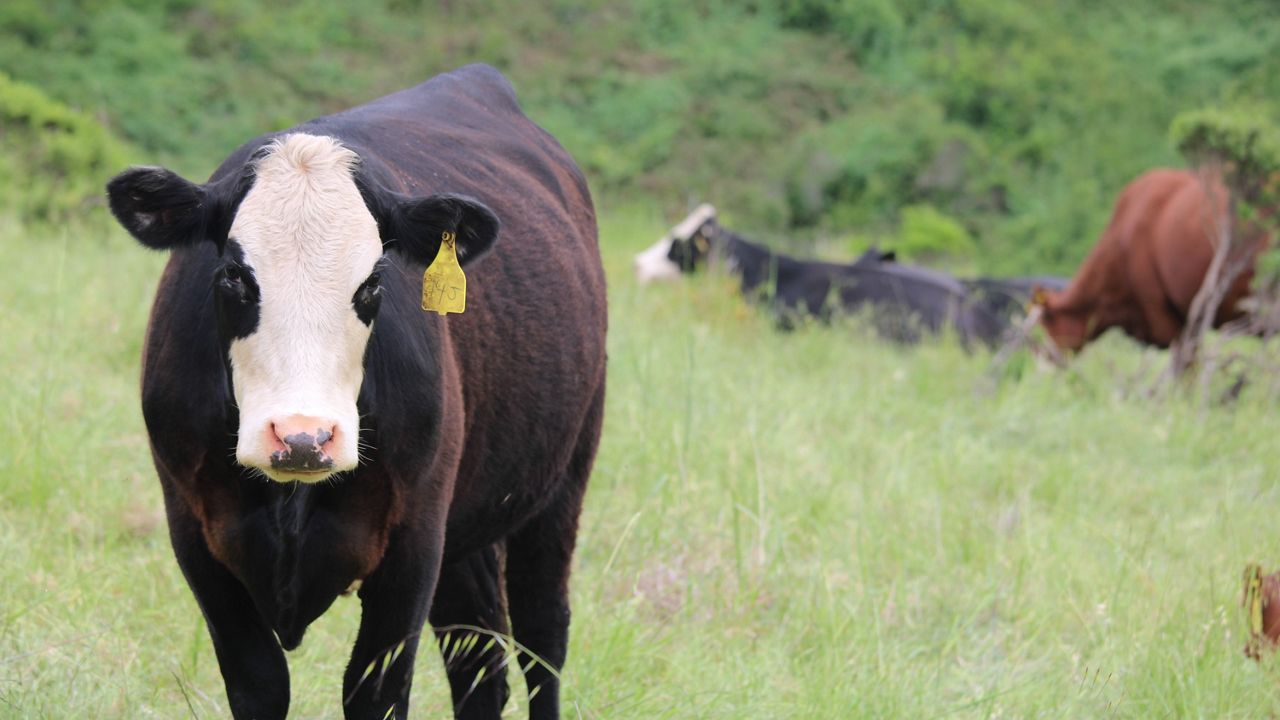LOS ANGELES — Tucked away in Pescadero, California, along the San Mateo County coast, is the 1800-acre TomKat Ranch.
The mission-driven ranch was co-founded by social impact investor Kat Taylor and is a science learning lab that practices regenerative agriculture intended to change our food system.
The practice is all about farming and ranching in harmony with nature.
“It is a way of getting back in balance with nature’s systems, cycles and balance,” Taylor said. “And create a wilderness production-based system for all the co-benefits that regenerative (agriculture) provides.”
This dynamic way of farming revolves around soil health, where an entire underground ecosystem thrives with zillions of microscopic organisms called microbes.
For those microbes to flourish, regenerative agriculture has five principles: minimize soil disturbance; keep the soil covered; maintain living roots; support biodiversity; and integrate livestock.
The practices vary whether you’re raising beef or growing fruits and veggies. But healthy soil is an ecosystem powerhouse — conserving water, absorbing nutrients and capturing carbon — playing a major role in climate change.
“It is the biggest solution set that we have, because it’s both emission-reduction and carbon re-sequestration at massive scale,” Taylor said.
Studies suggest that the global food system is a major contributor to climate change.
But while it’s part of the problem, a regenerative model offers a solution.

TomKat Ranch Director Wendy Millet knows that changing a system of this magnitude is no easy feat.
“It costs money, and you’ve got to learn, and then you’ve got to take the time to do that, so again like any industry it’s hard to get people to focus to make time to do that let alone to spend the money to do that,” Millet said.
Risk also plays a role for farmers and ranchers in transitioning to regenerative agriculture.
But it’s why TomKat Ranch invites folks on-site to see what’s possible.
“We just had someone on the tour today, and he has a farm in the Midwest, and he said, ‘I don’t think I can get my farm crew to change the whole farm, but I’m pretty inspired, I think I’m going to go home and suggest 50 acres we try.’ So great, that’s a good place to — that’s a safe to fail trial,” Millet said.
Minimizing risk is a central part of Taylor’s mission for changing the food system.
With a balanced ecosystem that is resilient to climate impacts and weather, she believes this method will protect farmers’ livelihoods, boost rural economies and create a healthy and secure food supply.
“Nobody wants to bet the farm,” Taylor said. “Nobody wants to lose the farm and we understand that. And there has to be demonstrated business success in any new model. And they have to be assured that we have de-risked it.”
So, the learning lab of TomKat Ranch will continue its work to prove that healthy soil makes healthy food and a healthy planet for all, and those effects alone are worth fighting for.



